Search Results
Showing results 281 to 300 of 397
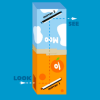
Periscope
Source Institutions
In this optics activity, learners build a spy tool to secretly view things over walls or around corners.
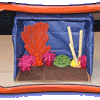
Create a Coral Reef
Source Institutions
Educator Amy O'Donnell from the American Museum of Natural History guides learners to create a diorama of a coral reef.
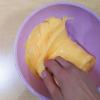
Measuring with Flubber
Source Institutions
In this activity learners will measure and manipulate flubber using different tools. Learners will explore volume and make observations about texture and shapes.
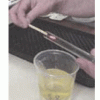
Having a Gas with Water
Source Institutions
In this activity, learners construct a simple electrolysis device. With this device, learners can decompose water into its elemental components: hydrogen and oxygen gas.
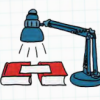
Light Bulb Challenge
Source Institutions
In this activity, learners explore the difference between compact fluorescent light (CFL) bulbs and traditional incandescent bulbs.
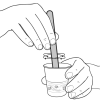
Choose Your Ooze
Source Institutions
During this activity, learners will make different versions of "ooze" using varied proportions of detergent and glue.
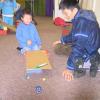
Exploring Ramps
Source Institutions
This guide features three related ramp explorations in which learners investigate the following science concepts: when placed on a ramp, some objects roll, others slide, and others stay put; the shape

Running on Empty
Source Institutions
In this exercise and nutrition activity, learners will explore how food is the fuel that powers them. They will create a chart to figure out how many calories they burn during recess.
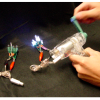
How can You Demonstrate the Efficiency of Different Light Bulbs?
Source Institutions
In this activity, learners actually feel the difference in energy required to light two different types of light bulbs: incandescent light and LEDs.
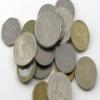
Sort It Out!
Source Institutions
In this activity, learners explore how engineers have developed sorting systems which integrate into manufacturing and packaging processes. Learners explore how coins are made.
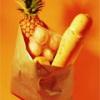
Design and Build a Better Candy Bag
Source Institutions
In this activity, learners explore how product design differences can affect the success of a final product -- in this case a bag for holding candy.
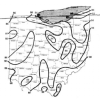
How is Coastal Temperature Influenced by the Great Lakes and the Ocean?
Source Institutions
In this two-part lesson, learners discover how large bodies of water can serve as a heat source or sink at different times and how proximity to water moderates climate along the coast.
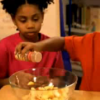
Applesauce
Source Institutions
In this "Sid the Science Kid" activity from Episode 109: The Perfect Pancake, learners make applesauce to explore irreversible change.
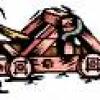
Catapult
Source Institutions
In this activity about transfer of energy, learners get to build their own catapult using nothing more than a plastic spoon and some tape.
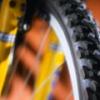
Give Me a Brake
Source Institutions
In this activity, learners explore the concept of how brakes can stop or slow mechanical motion.
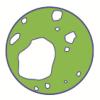
Sand Grain Observations
Source Institutions
In this activity (on page 1 of the PDF under SciGirls Activity: Earthquakes), learners will use a magnifier to carefully examine samples of sand from different locations.
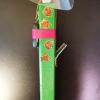
Personal Fan
Source Institutions
Cool off in the heat with this project! Learners use simple materials to build a fan that runs on a motor.
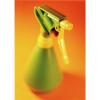
Wet Art
Source Institutions
In this activity (located on page 10 of the PDF), learners explore the properties of spraying and dripping water, while making art.
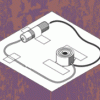
Hidden Alarm
Source Institutions
In this design challenge activity, learners invent a device that will make their friends and family ask, "What's buzzing?" Learners design an alarm with an on/off switch that is small enough to hide.
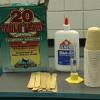
That's the Way the Ball Bounces: Level 1
Source Institutions
In this activity, learners prepare four polymer elastomers and then compare their physical properties, such as texture, color, size, and bounce height.
